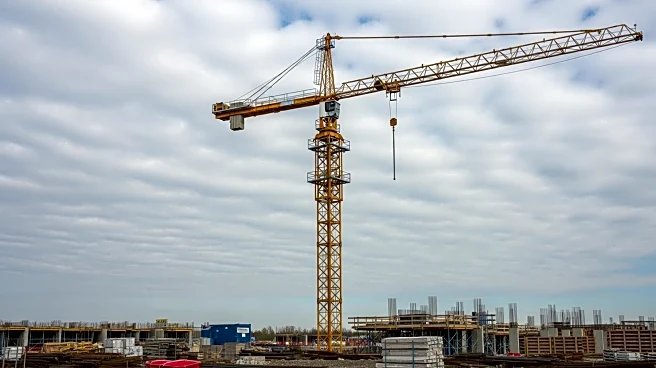What's Happening?
Skanska, a Stockholm-based builder and developer, reported strong third-quarter earnings driven by its construction performance, despite challenges in the commercial property development sector. The company's
operating income for the quarter was 1.36 billion Swedish crowns, an 8% increase from the same period last year. The construction business alone contributed 1.76 billion crowns to the operating income. However, Skanska faced write-downs of 700 million crowns due to adjustments in the value of its commercial assets in the U.S. The construction backlog remains historically high, with 264.4 billion crowns worth of projects, slightly down from the previous quarter. The firm has 22 months of construction work lined up in the U.S., particularly in infrastructure and data centers, which have seen increased demand due to investments in artificial intelligence.
Why It's Important?
The robust performance of Skanska's construction sector highlights the ongoing strength and demand in U.S. infrastructure and data center projects. This demand is partly fueled by significant investments in artificial intelligence, which require advanced facilities. However, the weak commercial property market, particularly in office spaces, poses challenges for Skanska and similar firms. The write-downs indicate a cautious approach to asset valuation in a fluctuating market. The construction sector's stability and growth are crucial for economic stakeholders, as they drive job creation and technological advancements. Conversely, the commercial property sector's struggles could impact urban development and real estate investments.
What's Next?
Skanska's outlook for the next 12 months remains stable for U.S. construction, with strong prospects in infrastructure. The company plans to adapt to evolving demands, particularly in data centers, by enhancing cooling capacities. The commercial property sector's future remains uncertain, but Skanska is optimistic about its Class A office buildings, anticipating a gradual return of workers to offices. The firm will continue monitoring market trends and adjusting its strategies to maintain growth and stability.
Beyond the Headlines
The challenges in the commercial property market reflect broader shifts in work culture and real estate dynamics. As remote work becomes more prevalent, the demand for office spaces may continue to fluctuate, impacting urban planning and commercial real estate strategies. Skanska's adaptation to data center needs underscores the growing importance of technology infrastructure in modern economies.









